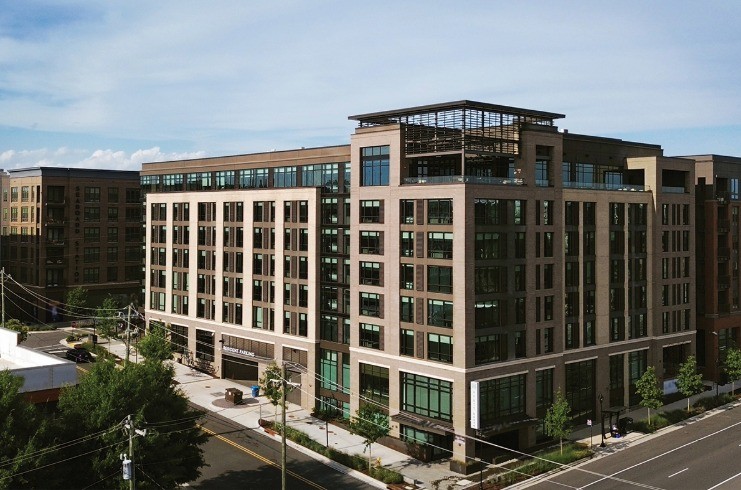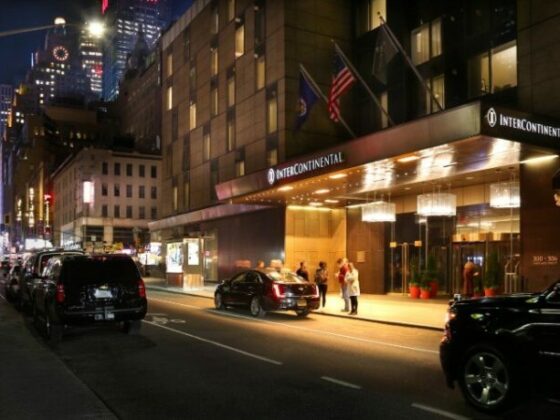
Mixed-use hotel developments are reshaping urban hospitality, combining lodging with retail, dining, office, and residential components under one roof. While these integrated projects promise enhanced guest experiences and diversified revenue streams, they also present unique operational challenges that require careful consideration.
As developers pursue these types of projects, understanding the advantages and pitfalls is crucial for making informed investment decisions. Read on to find out what hotel operators and developers need to know about mixed-use developments.
4 Advantages
Revenue Diversification: Mixed-use developments create multiple income streams that reduce financial risk during market downturns. When hotel occupancy drops, retail sales, office leases, and residential rents can help maintain cash flow. This portfolio approach within a single asset provides greater stability than traditional single-use properties.
Built-In Guest Amenities: Mixed-use developments allow hotels to offer extensive amenities by integrating with other property components rather than building separate facilities. When hotels share space with retail stores, restaurants, and office buildings, these become instant guest amenities without additional hotel investment. Guests enjoy convenient access to dining, shopping, and business services, while the hotel avoids the capital costs and operational headaches of developing standalone amenities.
Cross-Component Synergy: Different components in mixed-use developments can serve as traffic multipliers. For example, hotel guests frequent onsite restaurants and shops, office workers use hotel meeting spaces and services, while residents become regular patrons of ground-floor establishments. This cross-pollination has the potential to significantly boost revenue across all sectors.
Urban Efficiency: In high-barrier-to-entry markets where land commands premium prices, mixed-use developments can maximize revenue potential. By combining multiple functions, developers can justify higher revenue per square foot investments while creating more valuable assets than single-use alternatives. This efficiency is particularly beneficial in dense urban areas with strong zoning support for mixed-use projects.
4 Disadvantages
Complex Development Process: Mixed-use projects require coordination between multiple stakeholders with different risk profiles and return expectations. Financing becomes complicated when lenders must evaluate various property types simultaneously. Zoning approvals typically take longer, and development timelines may extend well beyond single-use properties, potentially increasing carrying costs and market exposure.
Conflicting Operational Needs: Hotel guests expect quiet environments while retail and dining areas generate noise and activity. Additionally, loading docks must accommodate different delivery schedules. For example, hotels receive supplies early in the morning while restaurants need frequent deliveries throughout the day. These competing requirements can result in operational compromises that can negatively impact guest satisfaction.
Management Complexity: Operating mixed-use developments requires expertise across multiple real estate sectors. Property managers must coordinate hotel operations, retail leasing, office tenant services, and residential management—each with unique schedules, security needs, and maintenance requirements. Finding qualified management teams with cross-sector experience remains challenging for many developers.
Parking and Traffic Issues: While shared parking reduces infrastructure costs, it creates operational headaches when there are overlapping peak periods. For example, morning office arrivals may conflict with hotel checkouts, while evening restaurant patrons may compete with guests for spaces. In addition, traffic flow becomes complex when the same entrances serve different groups with varying needs.
Looking Forward
Mixed-use hotel developments offer opportunities for revenue diversification and enhanced guest experiences, but success requires sophisticated development expertise and realistic expectations about operational complexities. As urban markets continue getting denser and travelers seek integrated experiences, these projects will likely expand. However, developers must carefully weigh potential benefits against challenges in financing, operations, and management to ensure success.






